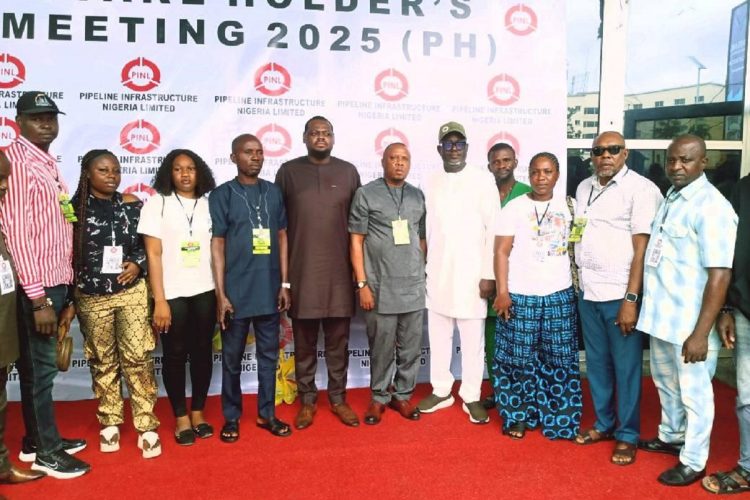Facebook, Instagram set to introduce time-management tools for users
August 2, 2018
Oil community wants Shell to expedite action on spill
August 6, 2018Sustaining global development goals in Nigeria’s construction industry
Analysts say Nigeria’s building industry is lagging behind in terms of standards but with the federal government interest in following global development trend the storyline may just be about to change
In spite of the government’s commitment to funding infrastructure by, industry stakeholders posit that the government cannot do it alone as it needs to involve the private sector.
The Nigerian Construction Sector is principally involved in development and maintenance of civil engineering works and infrastructural provision comprising roads, bridges, railways, etc., as well as residential and commercial real estate.
Opportunities for investment and expansion abound in the Industry for infrastructural and real estate development activities if the right policy, regulations, and framework are adopted and instituted.
According to the Nigerian Bureau of Statistics (NBS), the Construction Industry grew by 8 percent from the previous figures released the previous quarter.
From a drop in GDP of 21 percent in Q3 2016 from the prior quarter, the sector bounced back in Q4 2016 recording growth in nominal GDP of 19 percent over the previous period and increase of 15 percent in To address this, however, the Nigerian Building and Road Research Institute (NBRRI), recently organized an International Conference in Abuja to address the industry’s shortcomings.
The conference with the theme “Sustainable Development Goals (SDGs) and the Nigerian Construction Industry: Challenges and the Way Forward’’, suggests an indication of the federal government’s interest in following the global development trend in all aspects of life.
SDGs as a catalyst for change In his presentation during the conference, Director-General of NBRRI, Prof.
Danladi Matawal said that SDGs remained as an effective direction for creating an environment conducive for the global community.
According to him, SDGs address significant development that Millennium Development Goals (MDGs) failed to do in environmental degradation, inequality, weak institutional capacity and unsustainable consumption behavior in society. “In a sense, SDGs can be said to be concise, easy to communicate and action-oriented, which are the advantages over MDGs.
“The goals may also be described as universal, integrated, interlinked, inseparable, planet-sensitive and centered on people,’’ he said.
He said that the government would ensure the provision of smart cities and sustainable communities, design, and construction of infrastructure and renewable energy technology.
Sustaining the built environment He also said that a scheme—Sustainable Built Environment (SBE)—would be central to the delivery of policies for sustainable development.
ALSO READ: Petroleum Host and Impacted Communities Bill
Chevron reduces gas flares by 90%
Chevron – How we’ve been combating oil theft, pipeline vandalism
He further explained that the scheme would adopt environment-friendly design, procurement, construction methods and management practices toward efficient buildings and infrastructure. Matawal said that the SDGs, which reflected a global agenda toward socioeconomic development, were indicated in government’s plan for economic development, social inclusion, and environmental sustainability.
According to him, the increasing determination of society to achieve sustainable development for all has been an influential factor for the government’s assent to the 2030 Agenda for Sustainable Development.
“The 2030 Agenda for Sustainable Development which comprises 17 goals, 169 targets and about 100 indicators represent a new direction for the global community,’’ he said.
Global development agenda Matawal observed that the new global development goals for the next 12 years aimed at improving prosperity and well-being by addressing the present economic, social and environmental challenges in the society.
“These transformational goals are universally applicable to all countries and tackle the challenges of eliminating extreme poverty, safeguarding environmental sustainability while achieving economic and social wellbeing.
“It also takes into account different realities, capacities and levels of development of various countries,’’ he said.
Matawal argued that Nigeria ought to key into the rest of the world for innovative, simple, cheap and user-friendly solutions to develop the nation’s building environment.
The government is committed to infrastructure development. Expressing the government’s readiness in sustaining SDGs, the Minister of Science and Technology, Dr. Ogbonnaya Onu, said that the present administration was committed and determined to rebuild nation’s infrastructure, particularly in the area of housing and roads to meet SDGs.
According to him, a good network of roads is vital in the transportation of men, women, children, and goods from one part of the country to another.
“We need decent houses for our citizens, the rich and the poor, the old and the young, to live in; we also need houses for our schools, hospitals, offices, markets to mention a few.
“We need roads connecting our numerous cities, our rural areas and those leading from urban to rural areas, to our farms, homes, and places of relaxation and entertainment.
“This is very important in getting Nigerians to know the various parts of the country and help them to promote national unity and stability,’’ he said.
He said that such development would open areas of business through the utilization of local materials for the construction of roads, houses and creation of wealth for individuals and the nation.
Onu also explained that the conference would showcase enormous achievements made by researchers in NIBRRI, noting that the ministry had planned to help the institute to become one of the best in the world.
“Recently NIBRRI protected its intellectual property right by securing a patent for its laminated bamboo board.
“This product utilizes wastes bamboo during construction; this is one of the wastes-to-wealth initiatives of the institute.
“ This product is durable and termite-resistant which serves as a heat insulation, its strength is comparable with those of structural timber product like plywood and provides aesthetics to the interior of a building,’’ Onu said.
Addressing construction industry challenges But Chairman, Council of Registered Building of Nigeria, Prof.
Kabiru Bala, pleaded with the federal government to adequately address challenges facing construction industry to meet world standard He said that such effort would further spur the relevant stakeholders to work toward meeting the desired development in the construction industry.
He listed challenges facing Nigerian construction industry to include unethical practice, poor productivity and profitability, shortage of qualified workers and inconsistent prices of building materials, among others.
“The net consequences of these are high incidences of infrastructural failure and collapse arising from lack of adherence to specification.
“The use of foreign codes and standards without consideration for local situations and environmental peculiarities of a project should be discontinued.
“The adoption of the National Building Code of 2006 is gradually gaining grounds and should be promoted to enhance the development of sustainable construction in Nigeria,’’ he said.
He, therefore, advised that the construction industry should be harmonized and conducted in accordance with the relevant laws and standards guiding quality management of buildings and infrastructure development process with the active participation of key stakeholders.
The United Nations (UN) believes that the adoption of the SDGs marks a crucial moment for the global development agenda.
It also holds the belief that the new SDGs and the broader sustainability agenda address significantly the unsustainable consumption behavior in the society.
(NAN)
Culled From – Blueprint ng
Image Credit – Caylor Industrial








